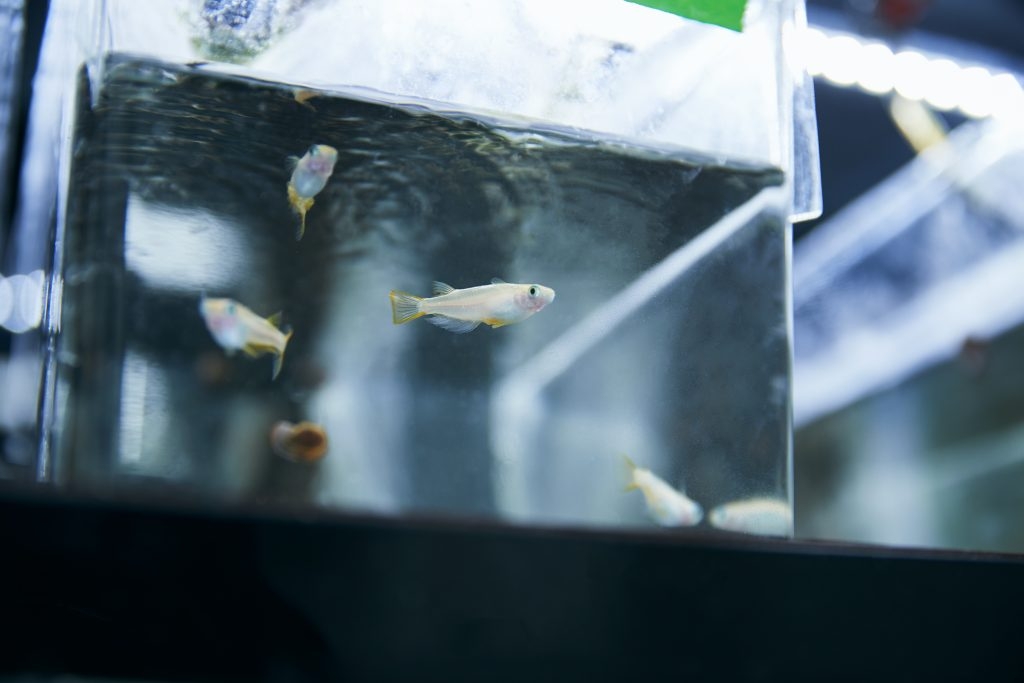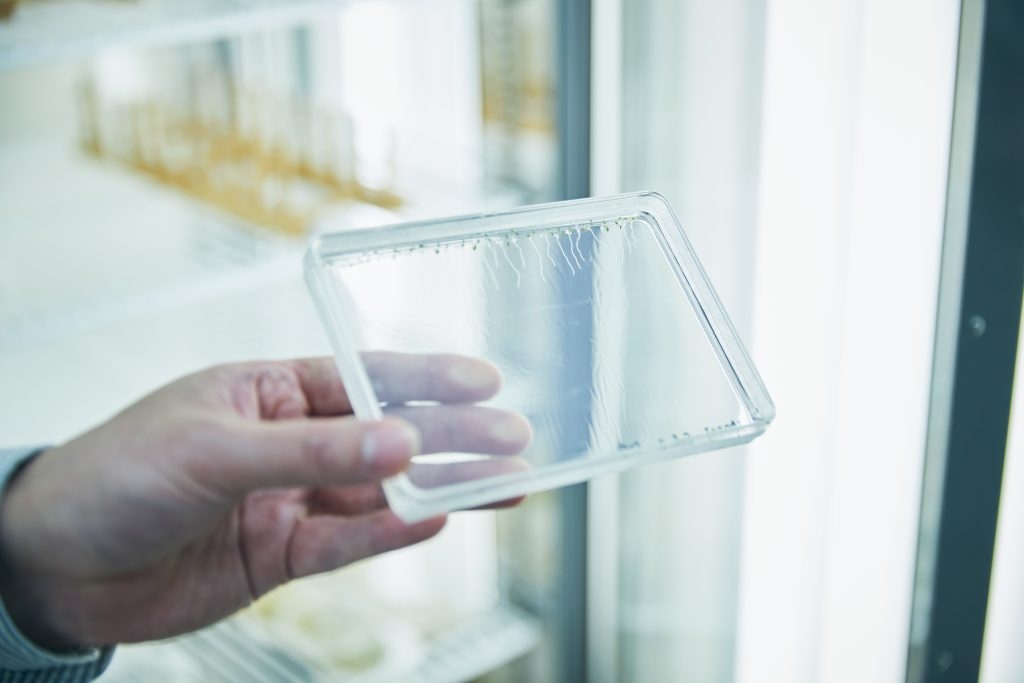In recent years, the impact of urban and industrial growth has increased the problems we face due to chemical outflow into the natural environment and atmospheric warming-induced abnormal weather. It is inevitable that these drastic environmental changes will end up threatening the food and health of humanity. Environmental action is an urgent problem which needs to be addressed on a global scale.
The research being conducted in the Division of Biological Environment Innovation is focused on technology that will contribute to the preservation of plant and animal ecosystems and diversity, as well as ensure the future of human food and health.
The division is divided among three groups focused on different areas: “environmental adaptation,” which involves the study of mechanisms by which organisms adapt to the environment, “molecular adaptation,” which involves unraveling the mysteries of life’s evolution and diversity, and “environmental symbiosis,” which involves the study of the action and impact of chemical substances within the environment.

The Division of Biological Environment Innovation cultivates strong collaboration among researchers by removing those barriers that exist between Japan and the wider world and Tokyo University of Science and other universities. Also, as it provides society with technologies for protecting humanity’s food and health, the division is accumulating insights and expertise beneficial to the protection of diversity among ecosystems and organisms.
For example, Associate Professor Miyagawa is currently pursuing a research project in conjunction with another university to study the impact on living organisms of chemical substances derived from everyday medicines, cosmetics, etc.
Meanwhile, Junior Associate Professor Sakamoto is studying the environmental adaptation mechanisms of plants, which involves investigating such topics as the impact on plants of ingredients in the soil and the environmental stress tolerance of plants, while, at the same time, participating in another research institute group to expand the scope of insights and expertise applicable to improving agricultural productivity.
The Division of Biological Environment Innovation is comprised of 20 research divisions, the majority of which operate in simultaneous conjunction with one another. By integrating knowledge from various specialized areas and bringing together research which has been heretofore pursued separately, entirely new avademic domains are being opened up.
Within the Bioenvironmental Innovation Research Division, priority is placed on maintaining collaboration and connection among researchers as they investigate environmental change and adaptation and pursue activities aimed at protecting the environment and the food and health of humanity.

■ Main research content
■ Main research content
■ Main research content